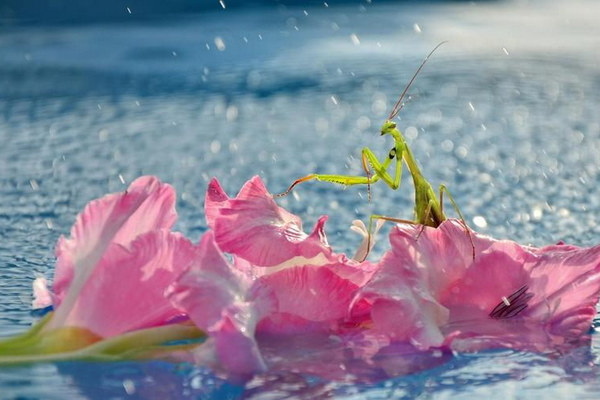Nicholas Breton. The Chess Play. Перевод
В одной исторической книге о дамах в политике, которую я стала читать по-английски, было процитировано это стихотворение. Я его раньше не встречала ни по-русски, ни по-украински. Нашла его полностью и постаралась перевести. Перевод близко к тексту (сама я — не шахматист), но названия фигур я заменила на современные отечественные — кроме ферзя, чтобы сохранялся намек на управление государством и контекст, где я встретила эти стихи (:-))). В оригинале конь называется рыцарем, а слон — епископом.
Текст оригинала по изданию: The Mirror of Literature. Amusement, and Instruction: containing original papers; historical narratives; biographical memoirs; memoirs and customs; topographical descriptions; sketches and tales; anecdotes; select extracts from new and expensive works; poetry, original & selected; the spirit of the public journals, discoveries in the arts and sciences, etc. -Vol. XXXVII — London: Hugh Cunningham, St. Martin’s Place, Traphalgar Square, 1841. — P. 148
The Chess Play
by Nicholas Breton (1545–1626)
A secret many yeeres vnseene,
In play at chesse, who knowes the game,;
First of the King, and then the Queene,
Knight, Bishop, Rooke, and so by name,;
Of euerie Pawne I will descrie,
The nature with the qualitie.
The King.
The King himselfe is haughtie care,
Which ouerlooketh all his men,;
And when he seeth how they fare.
He steps among them now and then,;
Whom, when his foe presumes to checke,
His seruants stand, to giue the necke.
The Queene.
The Queene is queint, and quicke conceit,
Which makes hir walke which way she list,;
And rootes them vp, that lie in wait
To worke hir treason, ere she wist:;
Hir force is such, against hir foes,
That whom she meetes, she ouerthrowes.
The Knight.
The Knight is knowledge how to fight
Against his prince’s enimies,;
He neuer makes his walke outright,
But leaps and skips, in wilie wise,;
To take by sleight a traitrous foe,
Might slilie seeke their ouerthrowe.
The Bishop.
The Bishop he is wittie braine,
That chooseth Crossest pathes to pace,;
And euermore he pries with paine,
To see who seekes him most disgrace:;
Such straglers when he findes astraie,
He takes them vp, and throwes awaie.
The Rookes
The Rookes are reason on both sides,
Which keepe the corner houses still,;
And warily stand to watch their tides,
By secret art to worke their will,;
To take sometime a theefe vnseene,
Might mischiefe meane to King or Queene.
The Pawnes.
The Pawne before the King, is peace,
Which he desires to keepe at home,;
Practise, the Queene’s, which doth not cease
Amid the world abroad to roame,;
To finde, and fall vpon each foe,
Whereas his mistres meanes to goe.
Before the Knight, is perill plast,
Which he, by skipping ouergoes,;
And yet that Pawne can worke a cast
To ouerthrow his greatest foes;;
The Bishop’s prudence; prieng still
Which way to worke his masters will.
The Rooke’s poore Pawnes, are sillie swaines,
Which seldome serue, except by hap,;
And yet those Pawnes, can lay their traines.
To catch a great man, in a trap:;
So that I see, sometime a groome
May not be spared from his roome.
The Nature of the Chesse men.
The King is stately, looking hie;
The Queene doth beare like majestie;
The Knight is hardie, valiant, wise;
The Bishop, prudent and precise.
The Rookes no raungers out of raie,;
The Pawnes the pages in the plaie.;
Lenvoy.
Then rule with care, and quicke conceit,
And fight with knowledge, as with force;;
So beare a braine, to dash deceit,
And worke with reason and remorse.;
Forgive a fault when young men plaie,
So giue a mate, and go your way.
And when you plaie beware of checke
Know how to saue and giue a necke;
And with a checke beware of mate;
But cheefe, ware had I wist too late:
Loose not the Queene, for ten to one,;
If she be lost,; the game is gone.
1638.
Николас Бретон (1545–1626)
Игра в шахматы
Вам расскажу о мастерстве,
Чей много лет секрет незрим:
Кто правит в шахматной стране,
Что за войска покорны им.
Речь о фигурах и шагах:
Какое званье ходит как.
Король
Король — тот с высоты глядит,
Себя в сражении блюдет.
Как подданных дела, следит,
Меж них туда-сюда шагнет.
Они же, чуть в беде король, —
Спасут, и жертвуя собой.
Королева
Ум государыни столь жив,
Что ходит, как по нраву ей.
Не пощадит того, кто лжив:
Изменник скор, она — скорей.
Такую мощь в бою хранит:
Кого ни встретит — поразит.
Конь
Конь знает, как ему побить
Врагов владыки своего.
Не хочет прямо он ходить,
Но действует прыжком, хитро.
Трюк — против замыслов лихих;
Смекалка посрамляет их.
Слон
Солидный Слон умом силен.
Он движется наискосок,
Тех поисками увлечен,
Кто навредить ему бы мог.
Врагов отставших он найдет —
С доски их — хоп! — и уберет.
Ладьи
Ладьи — в игре поддержат лад.
Им велено края беречь.
Хоть тихо, но упорно бдят,
Чтоб нападение пресечь:
Не дать злодею проскользнуть
И на монархов посягнуть.
Пешки
Пехота короля — покой,
Что хочет он в стране хранить;
Пехота королевы — в бой,
В поход назначена ходить:
Разведать, расчищать пути,
Чтоб государыне пойти.
Хоть тих солдат перед Конем —
Барьер, несложный для прыжка, —
Но все ж броском способен он
И мощного сразить врага.
Слон ждет, чтоб пеший угадал,
Куда задуман им удар.
Солдат ладьи — совсем простак:
Случайно лишь проснется он,
Но выстроит ловушку так,
Что будет богатырь пленен.
Порою лучше, коль слуга
На месте: польза дорога.
Характеры фигур
Итак, король — глава всему, —
Величием облек жену.
Конь храбр, не обделен умом,
Внимателен в расчетах Слон,
Ладья пойдет лишь по прямой,
А Пешке быть в игре слугой.
Посылка
Опаска, но и мысли блеск
Нужны; и ум, и силу — в ход.
Взгляд рушит козни, если трезв,
С ошибкой опыт пусть придет.
Простим неловкость новичка —
Над ним победа ведь легка.
Старайтесь шах предотвращать —
Спасать, порой и отдавать.
За шахом мат чтоб не настал …
Я поздно главное узнал:
Не сдайте королеву. С ней
Стране погибнуть можно всей.
Перевод 26,27,28. 09. 2019
Текст оригинала по изданию: The Mirror of Literature. Amusement, and Instruction: containing original papers; historical narratives; biographical memoirs; memoirs and customs; topographical descriptions; sketches and tales; anecdotes; select extracts from new and expensive works; poetry, original & selected; the spirit of the public journals, discoveries in the arts and sciences, etc. -Vol. XXXVII — London: Hugh Cunningham, St. Martin’s Place, Traphalgar Square, 1841. — P. 148
The Chess Play
by Nicholas Breton (1545–1626)
A secret many yeeres vnseene,
In play at chesse, who knowes the game,;
First of the King, and then the Queene,
Knight, Bishop, Rooke, and so by name,;
Of euerie Pawne I will descrie,
The nature with the qualitie.
The King.
The King himselfe is haughtie care,
Which ouerlooketh all his men,;
And when he seeth how they fare.
He steps among them now and then,;
Whom, when his foe presumes to checke,
His seruants stand, to giue the necke.
The Queene.
The Queene is queint, and quicke conceit,
Which makes hir walke which way she list,;
And rootes them vp, that lie in wait
To worke hir treason, ere she wist:;
Hir force is such, against hir foes,
That whom she meetes, she ouerthrowes.
The Knight.
The Knight is knowledge how to fight
Against his prince’s enimies,;
He neuer makes his walke outright,
But leaps and skips, in wilie wise,;
To take by sleight a traitrous foe,
Might slilie seeke their ouerthrowe.
The Bishop.
The Bishop he is wittie braine,
That chooseth Crossest pathes to pace,;
And euermore he pries with paine,
To see who seekes him most disgrace:;
Such straglers when he findes astraie,
He takes them vp, and throwes awaie.
The Rookes
The Rookes are reason on both sides,
Which keepe the corner houses still,;
And warily stand to watch their tides,
By secret art to worke their will,;
To take sometime a theefe vnseene,
Might mischiefe meane to King or Queene.
The Pawnes.
The Pawne before the King, is peace,
Which he desires to keepe at home,;
Practise, the Queene’s, which doth not cease
Amid the world abroad to roame,;
To finde, and fall vpon each foe,
Whereas his mistres meanes to goe.
Before the Knight, is perill plast,
Which he, by skipping ouergoes,;
And yet that Pawne can worke a cast
To ouerthrow his greatest foes;;
The Bishop’s prudence; prieng still
Which way to worke his masters will.
The Rooke’s poore Pawnes, are sillie swaines,
Which seldome serue, except by hap,;
And yet those Pawnes, can lay their traines.
To catch a great man, in a trap:;
So that I see, sometime a groome
May not be spared from his roome.
The Nature of the Chesse men.
The King is stately, looking hie;
The Queene doth beare like majestie;
The Knight is hardie, valiant, wise;
The Bishop, prudent and precise.
The Rookes no raungers out of raie,;
The Pawnes the pages in the plaie.;
Lenvoy.
Then rule with care, and quicke conceit,
And fight with knowledge, as with force;;
So beare a braine, to dash deceit,
And worke with reason and remorse.;
Forgive a fault when young men plaie,
So giue a mate, and go your way.
And when you plaie beware of checke
Know how to saue and giue a necke;
And with a checke beware of mate;
But cheefe, ware had I wist too late:
Loose not the Queene, for ten to one,;
If she be lost,; the game is gone.
1638.
Николас Бретон (1545–1626)
Игра в шахматы
Вам расскажу о мастерстве,
Чей много лет секрет незрим:
Кто правит в шахматной стране,
Что за войска покорны им.
Речь о фигурах и шагах:
Какое званье ходит как.
Король
Король — тот с высоты глядит,
Себя в сражении блюдет.
Как подданных дела, следит,
Меж них туда-сюда шагнет.
Они же, чуть в беде король, —
Спасут, и жертвуя собой.
Королева
Ум государыни столь жив,
Что ходит, как по нраву ей.
Не пощадит того, кто лжив:
Изменник скор, она — скорей.
Такую мощь в бою хранит:
Кого ни встретит — поразит.
Конь
Конь знает, как ему побить
Врагов владыки своего.
Не хочет прямо он ходить,
Но действует прыжком, хитро.
Трюк — против замыслов лихих;
Смекалка посрамляет их.
Слон
Солидный Слон умом силен.
Он движется наискосок,
Тех поисками увлечен,
Кто навредить ему бы мог.
Врагов отставших он найдет —
С доски их — хоп! — и уберет.
Ладьи
Ладьи — в игре поддержат лад.
Им велено края беречь.
Хоть тихо, но упорно бдят,
Чтоб нападение пресечь:
Не дать злодею проскользнуть
И на монархов посягнуть.
Пешки
Пехота короля — покой,
Что хочет он в стране хранить;
Пехота королевы — в бой,
В поход назначена ходить:
Разведать, расчищать пути,
Чтоб государыне пойти.
Хоть тих солдат перед Конем —
Барьер, несложный для прыжка, —
Но все ж броском способен он
И мощного сразить врага.
Слон ждет, чтоб пеший угадал,
Куда задуман им удар.
Солдат ладьи — совсем простак:
Случайно лишь проснется он,
Но выстроит ловушку так,
Что будет богатырь пленен.
Порою лучше, коль слуга
На месте: польза дорога.
Характеры фигур
Итак, король — глава всему, —
Величием облек жену.
Конь храбр, не обделен умом,
Внимателен в расчетах Слон,
Ладья пойдет лишь по прямой,
А Пешке быть в игре слугой.
Посылка
Опаска, но и мысли блеск
Нужны; и ум, и силу — в ход.
Взгляд рушит козни, если трезв,
С ошибкой опыт пусть придет.
Простим неловкость новичка —
Над ним победа ведь легка.
Старайтесь шах предотвращать —
Спасать, порой и отдавать.
За шахом мат чтоб не настал …
Я поздно главное узнал:
Не сдайте королеву. С ней
Стране погибнуть можно всей.
Перевод 26,27,28. 09. 2019
Метки:









